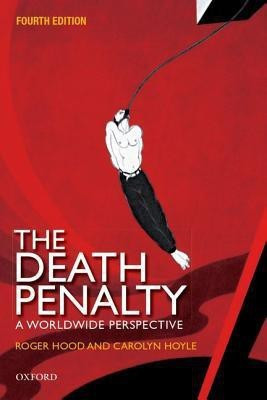The Death Penalty 4 REV EXP 2nd Edition(English, Paperback, Hood Roger QC (Hon) DCL FBA, Roger)
Quick Overview
Product Price Comparison
The 4th edition of this authoritative study of the death penalty, now written jointly with Carolyn Hoyle, brings up-to-date developments in the movement to abolish the death penalty worldwide. It draws on Roger Hood's experience as consultant to the United Nations for the UN Secretary General's five-yearly surveys of capital punishment and on the latest information from non-governmental organizations and the academic literature. Not only have many more countries abolished capital punishment but, even amongst those that retain it, the majority have been carrying out fewer executions. Legal challenges to the mandatory capital punishment have been successful, as has the pressure to abolish the death penalty for those who commit a capital crime when under the age of 18. This edition has more to say about the prospects that China will restrict and control the number of executions 'on the road to abolition'. Yet, despite such advances, this book reveals many human rights abuses where the death penalty still exists.In some countries a wide range of crimes are still subject to capital punishment, and the authorities too often fail to meet the safeguards embodied in international human rights treaties to safeguard those facing the death penalty. There is evidence of police abuse, unfair trials, lack of access to competent defence counsel, excessive periods of time spent on in horrible conditions on 'death row', and public, painful forms of execution. The authors engage with the latest debates on the realities of capital punishment, especially its justification as a uniquely effective deterrent; whether it can ever be administered equitably, without discrimination or error; and what influence relatives of victims should have in sentencing and on the public debate. For the first time, it also discussing the problem of devising an alternative to capital punishment, especially life imprisonment without the possibility of parole.


